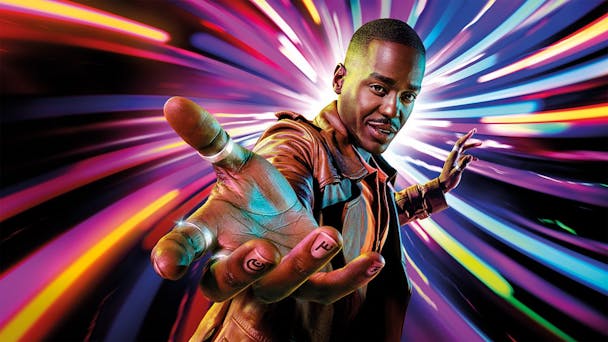Why our Doctor Who creator strategy was inspired by the Time Lord’s companions
BBC Studios has taken inspiration from the doctor’s companion dynamics to develop an effective creator strategy. Jasmine Dawson explains why, like the Tardis, there’s more than meets the eye.

“This is no time for me to be on my own.” Doctor Who, season one, episode three, ‘The Unquiet Dead’.
Doctor Who isn’t a human. They don’t perceive time linearly like a human. They can regenerate when there is mortal damage to their body. They’ve traveled across the universe and into the far reaches of time.
And yet they always return to Earth.
Explore frequently asked questions
Not because of the planet. But because of the people. Doctor Who is fascinated by humans, and since the series’ conception, they have (nearly) always had a human companion on their adventures.
The Doctor’s companions have assumed a variety of roles–involuntary passengers, assistants, friends, lovers. These allies come and go. But they fundamentally exist as surrogates for the audience, providing the lens through which the viewer is introduced to the story and, often, the series itself.
The companion character furthers the story by asking questions, which helps the audience understand too, and getting into trouble. But they can also be found helping, rescuing, or challenging the Doctor.
And we’re learning from this powerful relationship.
Creators turned colleagues
“Friends help each other face up to their problems, not avoid them.” Doctor Who, season 11, episode nine, ‘It Takes You Away’.
At BBC Studios, we’re taking a leaf out of the Doctor’s book by hiring creators from the community to become our in-house companions.
Advertisement
These creators, known also as super fans (and now as our colleagues), are leading our social content and programming.
Why? Because there is nobody better placed. To say they have their finger on the pulse is an understatement. They are the pulse.
It may sound risky - and in a way it is. They say you should never meet your heroes and we are engineering just that - placing fans right at the beating heart of the show they know inside out. That means creators on set, seeing right behind the curtain, liaising with production and having their say.
For obvious reasons, that means being incredibly selective about identifying the right companion for this job. Not just people who ‘get’ digital media, delivering content and messaging across channels with their own sonic screwdrivers. But those who can expertly balance this deep-rooted passion point with the objectivity of work. Finding that sweet spot is what makes these superfans turned creators invaluable- and precisely what the Doctor values in his companions. They surely inspire us - and challenge us - in equal measure.
And they need our support. Yasmin Finney, a transgender actress faced backlash after her role in Heartstopper. Our creator teams were critical in navigating through this challenge, assessing where moderators could step in, helping make difficult decisions in balancing censorship with removing hate speech.
It’s not easy to please everyone, especially when you have a diverse, global audience. But creators help us reach people across markets with authenticity and, most importantly, passion.
Advertisement
Using creators has helped bridge the gap between internal production and external reception. We’ve hired four creators into our in-house team who are combining passion with social expertise to help us forge closer bonds with audiences.
As we celebrate Doctor Who’s 60th anniversary and begin reimagining season one with Disney, we are embracing the creator economy to help us build communities and welcome new fans.
Human nature
“All you have to do is open your eyes and talk to whoever’s standing there.” Doctor Who, season seven, episode nine, ‘Hide.’
A Time Lord doesn’t need to hang out with humans. And a brand doesn’t need to use creators.
Doctor Who shows us the power of companionship. There will be a lot of discussion about the creator economy at Cannes Lions next week (and a lot of people who will wish they could travel in a TARDIS), but the core message will return to authenticity.
This goes both ways. Our creators inspire and challenge us equally. They help us see through our audiences’ eyes – just as they do for the Doctor.
Suggested newsletters for you
It’s one of the reasons we launched our TalentWorks Creators in Residence program back in 2020, and this week, its new digital division placements offer–three six-month paid residency roles as part of a 100,000 two-year investment supporting new emerging digital content creators across key brands, including Doctor Who.
Because creator talent can help you engage audiences, analyze content strategy effectiveness, navigate tricky comments, leverage algorithms, and learn new memes. All of this creates authentic connections with new and old audiences. And that is the sort of timeless value a Time Lord would appreciate.

